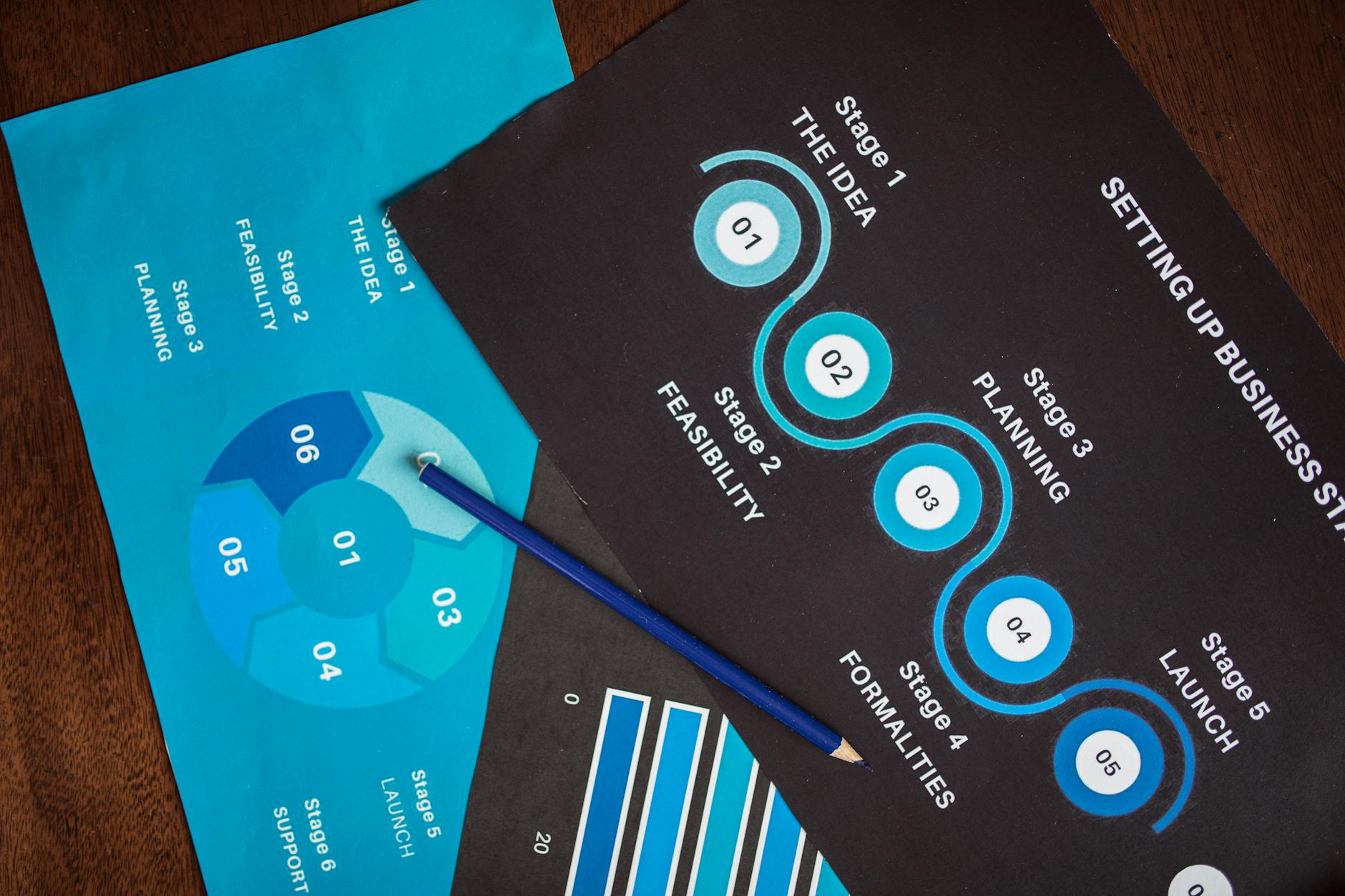When it comes to running a successful product-selling business, one of the critical factors that can make or break your operations is finding suppliers. The process of finding suppliers involves more than just a simple search; it requires a strategic approach to ensure that your business gets the best quality products to offer to your customers.
Finding the right suppliers can significantly impact the quality of your products and ultimately the success of your business. By sourcing materials from reliable and reputable suppliers, you can ensure that your products meet the highest standards, gaining trust from your customers and setting your business apart from competitors.
Identifying reliable suppliers is crucial in avoiding issues such as using substandard materials that could compromise the quality of your products. This could lead to dissatisfied customers and damage to your brand reputation, highlighting the importance of thorough supplier selection processes.
As a product-selling business owner, understanding how to navigate the supplier selection process can be a game-changer for your business’s growth and sustainability. By considering factors such as price, quality, reliability, communication, and financial stability, you can make informed decisions that benefit your business in the long run.
Ready to take your business to the next level by choosing the right suppliers strategically? Let’s delve into effective strategies and best practices that will empower you to make informed decisions that positively impact your product quality and overall business success.
Understanding the Role of Suppliers in Business Success
In the realm of product-selling businesses, finding the right suppliers is fundamental to ensuring quality, efficiency, and customer satisfaction. Suppliers play a crucial role in the success of a business by directly impacting product quality and business operations.
Supplier Importance in Product Quality
Suppliers hold the key to product quality as they provide the raw materials necessary for manufacturing. By sourcing high-quality materials from reputable suppliers, businesses can significantly enhance the integrity of their products. Utilizing top-notch materials not only improves the end product but also fosters customer satisfaction and loyalty. Cheap materials, on the other hand, can compromise the quality of products, leading to negative repercussions for the business’s reputation and bottom line.

Supplier Impact on Business Operations
The influence of suppliers extends beyond product quality to various aspects of business operations. Reliable suppliers are essential for maintaining cost efficiency, timely delivery, and overall operational smoothness. A dependable supplier ensures that production processes run seamlessly, deadlines are met, and customer demand is satisfied. Identifying reputable suppliers from the vast pool available is crucial for sustaining the operational excellence required for business success.
By understanding the critical role suppliers play in product quality and business operations, product-selling business owners can make informed decisions that positively impact their bottom line and customer satisfaction. Identifying and partnering with the right suppliers can be a transformative step towards achieving long-term success in the competitive marketplace.
Identifying Good vs. Bad Suppliers
As a product-selling business owner, choosing the right suppliers is crucial to the success of your business. When identifying good versus bad suppliers, it’s essential to consider various factors that can impact the quality and reliability of your products.
Quality Assessment Criteria
- Product Quality: Assess the quality of the products offered by the supplier. Look for consistency, durability, and adherence to standards to ensure your customers receive high-quality goods.
- Reliability: Evaluate the supplier’s track record in delivering orders on time. Reliability ensures you can meet your own deadlines and maintain customer satisfaction.
- Pricing: Compare the pricing of potential suppliers. While cost is important, be wary of excessively cheap materials that could compromise the integrity of your products.
- Ethical Practices: Investigate the supplier’s ethical standards, such as fair labor practices and sustainability. Aligning with ethical suppliers can enhance your brand reputation.
Assessing these criteria will help you determine the credibility and compatibility of suppliers with your business values and goals.

Warning Signs of Unreliable Suppliers
- Inconsistent Product Quality: Be cautious if you notice fluctuations in the quality of products received. Consistency is key to maintaining your product standards.
- Delayed Deliveries: Persistent delays in order fulfillment can disrupt your operations and impact customer satisfaction. Timely delivery is crucial for a smooth supply chain.
- Lack of Transparency: Transparency is vital in supplier relationships. If communication is unclear or information is withheld, it could signal potential issues in the partnership.
Identifying these warning signs early can help you avoid costly mistakes and maintain a reliable supply chain for your business.
Strategies for Finding the Right Suppliers
In the competitive world of product selling, finding the right suppliers is crucial for maintaining quality and keeping costs in check. Here are some key strategies to help business owners identify reliable suppliers and build strong partnerships.
Market Research and Supplier Vetting
Effective market research is the cornerstone of finding trustworthy suppliers. By conducting thorough market research, businesses can identify potential suppliers that align with their product needs and values. This involves analyzing supplier backgrounds, checking reviews, and requesting samples to assess product quality before making a commitment. Identifying red flags early can prevent future issues such as delays or subpar materials that could harm product integrity.
 Photo by RDNE Stock project
Photo by RDNE Stock project
Establishing Communication Channels
Clear and open communication with suppliers is essential for a successful partnership. Building effective communication channels ensures that both parties are aligned on product specifications, delivery schedules, and pricing. By maintaining transparent communication, business owners can address any issues promptly, reducing misunderstandings and fostering a collaborative relationship with suppliers.
Negotiation and Contract Best Practices
Negotiating favorable terms with suppliers while ensuring a fair deal is a skill that can benefit both parties. Understanding key contract components, such as pricing, payment terms, and quality standards, is essential for a successful partnership. By outlining expectations clearly in contracts, businesses can mitigate risks and establish a solid foundation for a long-term collaboration.
For further insights and tips on finding the right suppliers, you can explore resources like How To Find a Manufacturer or Supplier for a Product (2024) and How to find wholesalers and suppliers for your business. These resources offer valuable information to help product selling business owners navigate the supplier selection process effectively.
Maintaining Supplier Relationships for Long-Term Success
Building and nurturing strong relationships with suppliers is crucial for the long-term success of any product-selling business. Let’s delve into essential strategies for maintaining positive and productive partnerships.
Continuous Evaluation and Feedback
Regular evaluation and feedback mechanisms with suppliers are key components in ensuring the sustained quality of materials and services. By consistently assessing supplier performance and providing constructive feedback, businesses can address any shortcomings promptly, maintain quality standards, and align with evolving business needs. This ongoing evaluation fosters a culture of continuous improvement and accountability, benefiting both parties involved.
Adapting to Market Changes with Flexible Suppliers
In a dynamic market environment, it’s vital to collaborate with suppliers that can adapt to market fluctuations and varying business requirements. Working with flexible suppliers who are responsive to changing demands allows for agility and scalability in production. Building a partnership based on mutual trust and open communication enables businesses to navigate uncertainties and seize growth opportunities effectively. Flexibility in supplier relationships is a valuable asset that empowers businesses to remain competitive and responsive to market shifts.
Maintaining harmonious supplier relationships through continuous evaluation, feedback, and adaptability to market changes is fundamental in securing a reliable supply chain. By nurturing these connections, product-selling businesses can mitigate risks, enhance product quality, and drive long-term success. Remember, a strong supplier network is the backbone of a thriving business.

Conclusion
In the realm of product-selling businesses, the process of finding suppliers plays a pivotal role in determining the success and sustainability of your operations. Quality, reliability, and long-term partnership potential are the cornerstones upon which supplier selection should be prioritized. By ensuring that your suppliers meet these criteria, you are laying a strong foundation for the growth and reputation of your business.
Remember, suppliers are not just transactional entities but strategic partners who can either propel your business forward or hold it back. Leveraging referrals from professional networks, conducting thorough research, and vetting potential suppliers meticulously are crucial steps in finding the right partners for your unique business needs.
As you navigate the supplier landscape, always keep in mind that the choices you make today can have far-reaching implications for your business tomorrow. Invest the time and effort to forge relationships with suppliers who align with your values and goals, as these alliances can be the driving force behind your business’s competitive edge and long-term success.



